Address of Director
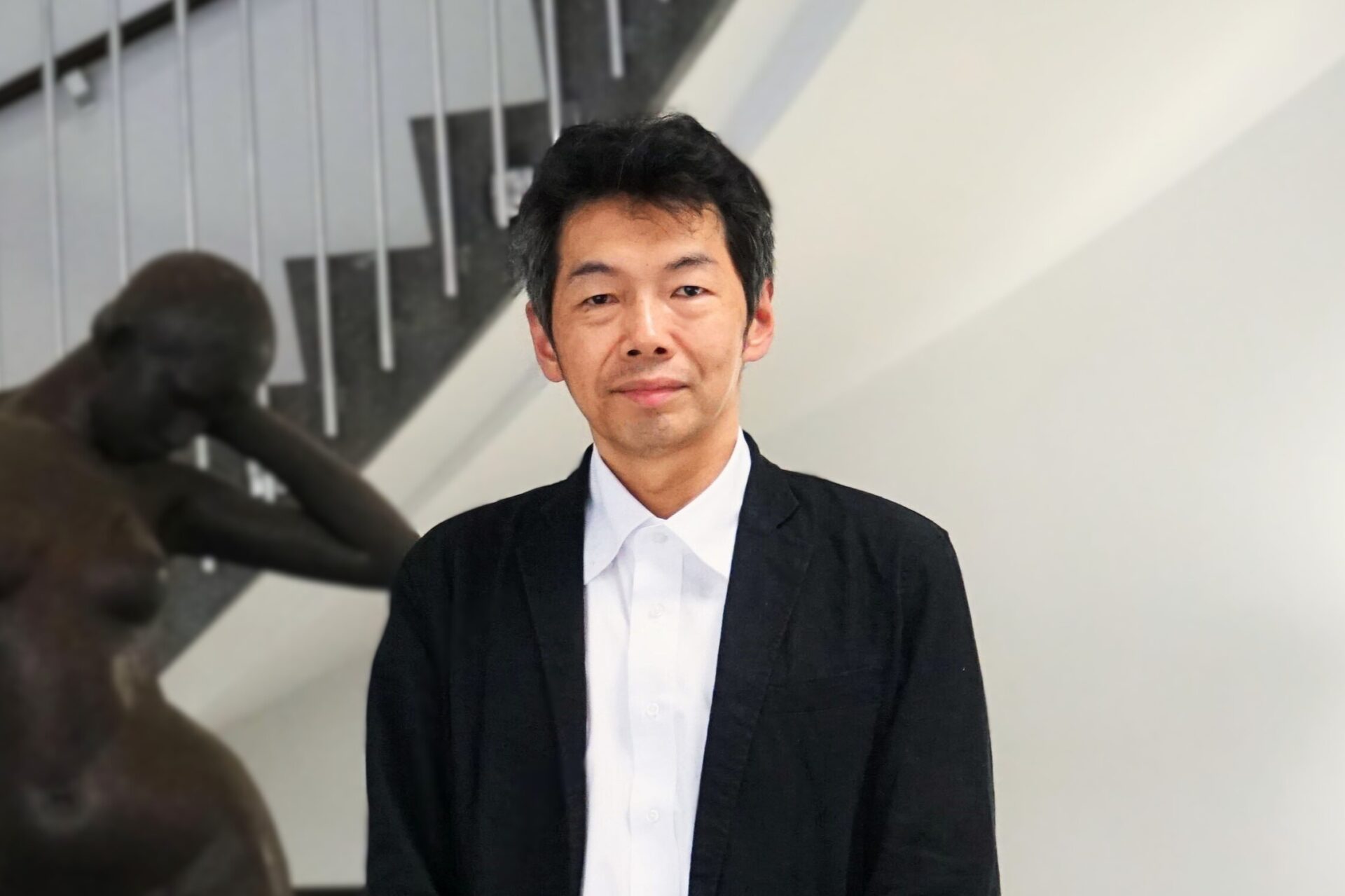
Kyoto Institute of Economic Research Director
Since its establishment in 1962, Kyoto Institute of Economic Research (KIER) has become a premier economics research institution in Japan. Starting with significant research in major fields of economics such as econometrics, economic theory, and comparative economics, we have also published research with international impact in spatial economics and nonlinear dynamics/complexity economics, as well as game theory. In addition, recent research themes of our faculty include topics directly related to understanding the real economy and resolving issues thereof, such as analysis of household behavior and intermediation theory. To date, KIER has been engaged in various efforts to disseminate cutting-edge research papers in economics and to contribute to diverse stakeholders. For example, in recruiting, we introduced a tenure-track system in 2010, ahead of other research institutions in Japan, and have been actively recruiting internationally for many years. As a result, with the number of foreign staff hired steadily increasing, we are getting international. Furthermore, this kind of recruitment on an international scale is made possible by the Joint Usage/Research Center “International Joint Research Center for Advanced Economic Theory,” which has been certified by the Ministry of Education, Culture, Sports, Science and Technology since 2010. Building on the strong international co-author network of each faculty, the center’s function not only supports international joint research and international networking, but also provides researchers in Japan with opportunities to participate in the international collaboration schemes. It thus plays an indispensable role in improving Japan’s research capabilities. Furthermore, the Research Center for Advanced Policy Studies (CAPS), established in 2005, functions as a place where the research results of KIER can be used in policy formulation through interactive research exchanges with researchers dispatched by government agencies. We would like to continue to promote the two-pronged system that contributes to the research community through the Joint Usage/Research Center and contributes to solving social issues through the implementation of policies made in CAPS. Maintaining and improving the various research assets that KIER has accumulated over the years is my top priority. Personally, I am a small-time researcher who only does calculations as precise as writing on a grain of rice, but I will bring together the wisdom of all the KIER faculty to tackle this big theme. We would like to ask for the support and cooperation of many people toward the development of the institute.
About KIER
KIER (Kyoto Institute of Economic Research) is the comprehensive research centre for high-quality research with a focus on theoretical economics, applied economics and econometrics. Mainly contributing to the basic theoretical approaches, KIER has flexibly investigated contemporary research topics and policy recommendations. KIER started its research base as incorporated association “Comprehensive Research Institute of Economics” in 1955 and was officially founded as Institute of Economics attached to Kyoto University in 1962. KIER started as two divisions, industrial structure and comparative industry, and has grown rapidly in size and scope, today encompassing four divisions and two centres. In 2010, KIER was approved by the Japanese Ministry of Education, Culture, Sports, Science and Technology (MEXT) as a Joint Usage/Research Centre in the sphere advanced economics theory. In 2005, KIER has organized Centre for Advanced Policy Studies (CAPS) to promote the evidence-based policy making. The research of KIER has been interdisciplinary and advanced, at the forefront of economic theory. It has also been international, building a strong research network overseas. In addition, KIER considers education to be an important part of its mission, organizing various paths for young scholars. Below you will find an overview of KIER’s mission, its management structure and history, as well as information on KIER’s campuses and offices, its budget and personnel and its governance.
History
| 1962.03 | The Economic Research Foundation is attached to Kyoto University through an amendment of the Japan National School Establishment Law, promulgated as Law No. 36 of 1962. |
| 1962.04 | The Kyoto Institute for Economic Research is founded with two departments, economic structures and comparative business systems. |
| 1962.05 | Secretariat opens on the main campus of Kyoto University. |
| 1962.12 | KIER Building Support Group formed |
| 1963.08 | Office moved to temporary quarters in Yoshida Shimoadachicho (with a research facility on the west campus). |
| 1964.04 | Regional Economics Department and Resource Economics Department established, pursuant to Ministry of Education Order No. 10. |
| 1964.07 | The Building Support Group begins construction of the permanent building. |
| 1965.05 | Permanent building completed by the Building Support Group and transferred to KIER. Moved to the new building. |
| 1966.04 | Planning Economics Department and Industry Statistics Department established, pursuant to Ministry of Education Order No. 24. |
| 1968.04 | Reorganized with three research divisions: economic structure, resource economics, and statistics. |
| 1972.10 | 10th anniversary celebration event, and commemorative lecture series presented for researchers. In Osaka, a 10th anniversary event is held and a commemorative academic meeting is convened at Asahi Shimbun Hall. |
| 1976.04 | Regional Economics Department becomes an empirical division. |
| 1977.04 | Environmental Economics Department established, pursuant to Ministry of Education Order No. 15./td> |
| 1978.04 | Planning Economics Department becomes an empirical division. |
| 1979.04 | Comparative Economic Systems Department established, pursuant to Ministry of Education Order No. 12. |
| 1981.04 | Contemporary Economic Analysis Department (for visiting researchers) established, pursuant to Ministry of Education Order No. 12. Fourth floor added to the KIER building. |
| 1982.11 | The 20th anniversary is observed with a memorial academic meeting at the Osaka Prefecture Cultural Information Center. |
| 1982.12 | For the 20th anniversary, a commemorative academic lecture series is presented for researchers. |
| 1983.04 | Comparative Economic Analysis Department (visiting overseas researchers) established, pursuant to Ministry of Education Order No. 11.。 |
| 1986.04 | Pursuant to Ministry of Education Order No. 19, the Institute is reorganized as twelve departments in four divisions: quantitative industry analysis, economic planning, resources and environment, and comparative economics. |
| 1991.04 | An additional department brings the total to 13 departments. |
| 1992.10 | For the 30th anniversary the Kyoto University Faculty of Economics presents a commemorative lecture. In Toyonaka of Osaka prefecture, the 30th anniversary is marked with a commemorative symposium at the Senri Life Science Center. |
| 1993.03 | Comparative Economic Analysis Department (visiting overseas researchers) discontinued as scheduled. |
| 1993.04 | International Political Economy Department (visiting overseas researchers) established, pursuant to Ministry of Education Order No. 19. |
| 1994.06 | Resources and Environment Department expanded to a fifth division. A total of fifteen departments are in operation. |
| 2000.04 | Founding of the Research Center for Financial Engineering. |
| 2001.10 | Applied Financial Engineering Department opens with a three-year sponsorship from the Nomura Securities Group. |
| 2002.04 | Economic Planning Division renamed the Complex Systems Division, pursuant to an amendment of the National School Establishment Law. |
| 2002.10 | The 40th anniversary is marked with a commemorative symposium and banquet at the Kyoto International Conference Center. |
| 2002.11 | In Tokyo the 40th anniversary is marked with a commemorative symposium and banquet at the National Center of Sciences (Hitotsubashi Hall). |
| 2004.02 | Lionel McKenzie, emeritus professor at the University of Rochester, receives an honorary doctoral degree from Kyoto University.br> McKenzie Library opens, housing the collection donated by Professor McKenzie. |
| 2004.04 | The Institute is reorganized into three divisions – information analysis, economic systems, and public policy – and two centers, for financial engineering and complex systems. KIER Tokyo satellite office opens in Marunouchi (until January 31, 2012). |
| 2004.10 | Applied Financial Engineering Department extended with a second three-year sponsorship from the Nomura Securities Group . |
| 2005.07 | Founding of the Center for Advanced Policy Studies. |
| 2006.08 | Sponsorship of the Applied Financial Engineering Department changed from the Nomura Securities Group to the Nomura Group. |
| 2007.04 | Educational Economics Department established with a three-year sponsorship from the Japan Kanji Aptitude Testing Foundation (until March 31, 2010). |
| 2007.10 | Mathematical Finance Department established in commemoration of Prof. Kiyosi Ito receiving the Gauss Prize, with a two-year sponsorship from the Nomura Group. |
| 2008.03 | Library moves to the KIER North Annex as the former library building is closed for seismic retrofitting. |
| 2008.08 | Marunouchi Office opens in Tokyo as a communication and coordination base in connection with the Keio University GOCE program (until January 31, 2012). |
| 2008.09 | Mita Office opened in Tokyo as an education and research base in connection with the Keio University GOCE program. |
| 2008.12 | 816m2 of work and lecture space is obtained on the south side of the fourth floor in the Faculty of Engineering Integrated Research Building, Tower 2. |
| 2009.04 | Public Policy Department renamed the Economic Strategy Department. |
| 2010.04 | The sponsored Center for Research in Financial Engineering is reorganized as the Finance Department. KIER is designated a joint usage/research center with emphasis on international collaboration in advanced economic theory. International Unit for Integrated Complexity Science established (until March 31, 2015), to cooperate with the Survival Studies Unit. |
| 2011.04 | The attached Center for Advanced Policy Studies becomes part of the division structure.。 |
| 2012.11 | The 50th anniversary is observed with a commemorative lecture and banquet at Shiran Kaikan. At the Tokyo office of Kyoto University, the 50th anniversary is marked with a commemorative lecture and banquet. |
| 2013.03 | Seismic retrofitting of the KIER building is completed. |
| 2013.04 | April 2013 Administrative functions are consolidated into the Faculty of Arts joint secretariat on the main campus, for greater efficiency (April 1, 2013). |
| 2013.07 | Administrative staff blasted full after the office of the Faculty of Arts joint secretariat completely relocated (July 1, 2013). |
| 2014.04 | Liaison Unit for Integrated Social Science established (until March 31, 2025). |
KIER Annual Reports・Profile of KIER
List of Directors
| ー | Directors | Term |
|---|---|---|
| the first | Seijiro Kishimoto | 1962.04.01〜1966.03.31 |
| 2th | Hideo Aoyama | 1966.04.01〜1971.11.30 |
| 3th | Masao baba | 1971.12.01〜1974.03.31 |
| ー | Chikashi Moriguchi) | 1974.04.01〜1974.07.15 |
| 4th | Hisao Onoe | 1974.07.16~1978.07.15 |
| 5th | Kenzo Yukizawa | 1978.07.16~1980.02.08 |
| ー | Yoshikazu Miyazaki | 1980.02.08~1980.03.31 |
| 6th | Yoshikazu Miyazaki | 1980.04.01~1983.04.01 |
| 7th | Hisao Onoe | 1983.04.02~1986.03.31 |
| 8th | Masao Baba | 1986.04.01~1986.10.27 |
| ー | Kazuo Koike | 1986.10.27~1986.12.31 |
| 9th | Kazuo Koike | 1987.01.01~1988.03.31 |
| 10th | Shoshichi Sugimoto | 1988.04.01~1990.03.31 |
| 11th | Takamitsu Sawa | 1990.04.01~1994.03.31 |
| 12th | Takao Fukuchi | 1994.04.01~1995.03.31 |
| 13th | Takamitsu Sawa | 1995.04.01~1999.03.31 |
| 14th | Masahisa Fujita | 1999.04.01~2001.03.31 |
| 15th | Takamitsu Sawa | 2001.04.01~2006.03.031 |
| 16th | Kazuo Nishimuta | 2006.04.01~2010.03.31 |
| 17th | Makoto Yano | 2010.04.01~2012.03.31 |
| 18th | Satoshi Mizobata | 2012.04.01~2016.03.31 |
| 19th | Akira Okada | 2016.04.01~2016.12.01 |
| 20th | Satoshi Mizobata | 2017.01.01~2020.03.31 |
| 21th | Yoshihiko Nishiyama | 2020.04.01~2023.03.31 |
| 22th | Tadashi Sekiguchi | 2024.04.01~ |
List of Professors Emeriti
| No. | Professor Emeriti | Date of the title conferred |
|---|---|---|
| No.1 | Seijiro Kishimoto | 1966.04.02 |
| No.2 | Hideo Aoyama | 1973.04.02 |
| No.3 | Hisao Onoe | 1986.04.01 |
| No.4 | Yoshikazu Miyazaki | 1990.01.23 |
| No.5 | Fumiko Seo | 1993.04.01 |
| No.6 | Shoshichi Sugimoto | 1996.04.01 |
| No.7 | Chikashi Moriguchi | 1997.03.04 |
| No.8 | Takao Fukuchi | 1997.03.04 |
| No.9 | Masahiko Aoki | 2001.03.06 |
| No.10 | Takamitsu Sawa | 2006.04.01 |
| No.11 | Masahisa Fujita | 2007.04.01 |
| No.12 | Kazuyoshi Uehara | 2007.04.01 |
| No.13 | Akio Sakai | 2007.04.01 |
| No.14 | Tsuneo Tsukatani | 2008.04.01 |
| No.15 | Kazuo Nishimura | 2010.04.01 |
| No.16 | Ryuhei Wakasugi | 2012.04.01 |
| No.17 | Haruo Imai | 2015.04.01 |
| No.18 | Kazuo Mino | 2015.04.01 |
| No.19 | Ken Ariga | 2016.04.01 |
| No.20 | Makoto Yano | 2018.04.01 |
| No.21 | Atsushi Kajii | 2020.02.18 |
| No.22 | Hiroshi Osano |
2020.04.01 |
| No.23 | Satoshi Mizobata |
2021.04.01 |
Previous Projects
Global Center of Excellence Program “Raising Market Quality and Integrated Design of Market Infrastructure” (jointly with Keio University)
Program Overview
The 21st Century Center of Excellence Program “Development of a Theory of Market Quality and Empirical Analysis Using Panel Data.” proposed the new research area of market quality theory, based on the idea that high-quality markets are required for healthy development and growth in the contemporary economy. The theory holds that low market quality is a cause of many contemporary problems such as the US subprime housing loan crisis and the fraudulent corporate accounting that surfaced in the US after the dot-com collapse. The field was defined by conducting theoretical and empirical research on household behavior panel data, and disseminated through the publication of many papers, leading to positive interim appraisals. The program also built up cooperative relations with a worldwide network of universities and institutes.
This Global COE program clarifies the dynamics of market quality in the actual economy, by setting out a new economic perspective that views the market as an endogenous unit. The many elements surrounding the market including laws, institutions, organizations, culture, ethics and customs are taken as the market infrastructure, and the dynamics of market quality and market infrastructure are identified. Conventional theories of markets and market structure have tended to be based on static analysis, a direct comparison between the actual market and the ideal conditions of perfect competition. Yet in reality few markets could be converted overnight to perfect competition. This program posits a spectrum of markets with differing qualities, with perfect competition at one end, along which the actual market gradually and endogenously moves according to changes in its infrastructure. The process is elucidated through theory, data and verification, using wide-ranging research on findings from panel data. This serves the field of economics by enabling the design and coordination of market infrastructure for gradual stimulation of market quality, thus determining paths for healthy development and growth. In the area of policy design, the program seeks to validate the effectiveness of a new principle: pursuing market quality through the prior, indirect method of market infrastructure coordination.
At the same time, this Global COE fosters many young researchers who can develop the research in the future and take leadership in the improvement of market quality.
Webpage of the Global COE Program on Human Behavior and Socioeconomic Dynamics (Kyoto University/Osaka University)
Program Overview
Building an economics based on human behavior depends on clarifying the mechanisms of human behavior from an economic standpoint. Specifically, it is important to measure preference parameters including time preference, risk aversion, altruism, impulsivity and liquidity preference. In this program the parameter measurement is performed by integrating traditional economics methods with methods of statistical analysis, hypothetical questions, economic experiments and neuroscience.
The attributes of human preference derived through those methods provide the basis for clarifying socioeconomic dynamics that conventional analysis does not grasp. The specific research areas are:
① Preference and Wellbeing: Clarifying the preference characteristics such as time preferences, risk aversion or altruism and the relationship between feeling of wellbeing and economic circumstances
② Household Behavior: Analysis of domestic consumption and labor supply behavior, considering psychological aspects.
③ Business Behavior: Analysis of investment behavior, funding behavior and investor behavior.
④ Institutional Design: Efficient design of market systems and economic organizations.
⑤ Macroeconomics: Growth and business fluctuations.
⑥ Education and Training: Analysis of the economic effects of education and training.
These areas are interrelated. What economics researchers are seeking is the ability, when confronted by a new economic problem, to develop new concepts and methods, propose solutions, and share findings with the global research community. To foster young researchers with those capacities, the program has put in place a thorough curriculum of basic common courses including a mathematics preparatory course for incoming graduate students. Doctoral students participate in COE project seminars to learn about panel research, economic experiments and other new research techniques. This type of educational structure fosters interdisciplinary researchers who are not confined to particular subject fields. Graduate students are also sent to international conferences and overseas trainings, and taught to prepare papers and presentations in English. This COE program continues to seek young researchers to take on a leading edge of economics.
Academic Agreements
KIER is widely known as an international research center for economic theory. The International Journal of Economic Theory, which is published jointly with Keio University, is highly regarded as a global specialist journal, and is the first international journal of economic theory edited primarily by Japanese researchers. Further, in addition to establishing posts for non-Japanese visiting teachers and inviting world-leading researchers, KIER is also engaged in various joint international research, and is ceaselessly visited by non-Japanese researchers. In light of this track record, KIER has signed agreements with overseas universities in America, France, and elsewhere, and is actively engaging in research exchange.
Research Institute of Economy, Trade and Industry, Japan
An agreement for academic cooperation and exchanges was concluded July 1, 2007 with the Research Institute of Economy, Trade and Industry (RIETI), Japan.
Research Institute of Economy, Trade and Industry (RIETI) is a non-civil service style incorporated administrative agency, established in April 1, 2001 to spark creative and original policy discussion on the basis of global-level analysis and policy research from middle to long-term strategic viewpoints. (Reference source web page: RIETI)
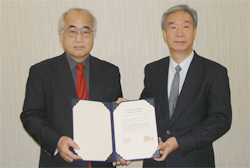
EU Institute in Japan, Kansai
An agreement for academic cooperation and exchanges was concluded August 1, 2008 with the EU Institute in Japan, Kansai.
The EU Institute in Japan, Kansai promotes education, research and public awareness about the European Union in order to support stronger relations between Japan and the EU. Founded in April 1, 2005, it is operated by a consortium of Kobe University, Kansei Gakuin University and Osaka University with funding from the European Commission.
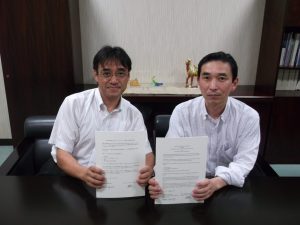
Institute of Economic Research (IER), Hitotsubashi University
The IER of Hitotsubashi University has generated numerous outstanding research results through the development of databases on the economy and society as well as the oretical and empirical analysis and policy research linked to statistical data, and has been admitted as a Joint Usage and Research Center for Empirical Analysis on Japanese and Global Economy. In order to strengthen the mutual linkages of Centers, we have exchanged memorandums.
Institute of Social and Economic Research (ISER), Osaka University
The ISER of Osaka University has achieved research results on the economic theory, empirical analysis and policy studies, and has offered opinions about the contemporary tasks such as economic growth and business cycle. The ISER has organized Research Center on Behavior Economics and it has been appointed as a Joint Usage and Research Center. In order to strengthen the mutual linkages of Centers, we have exchanged memorandums.
The Panel Data Research Center at Keio University (PDRC)
The PDRC is a research and education institution established for the purpose of playing a leading role in panel data research in Japan, and has been appointed as a Joint Usage and Research Center. In order to strengthen the mutual linkages of Centers, we have exchanged memorandums.
Kakegawa City
On June 19, 2024, the “Ceremony for the partnership agreement between Kakegawa City and the KIER” was held at Kakegawa City Hall.
Through this agreement, KIER conducts joint research that contributes to solving social problems, utilizing data held by Kakegawa City, as well as to hold lectures for city employees.
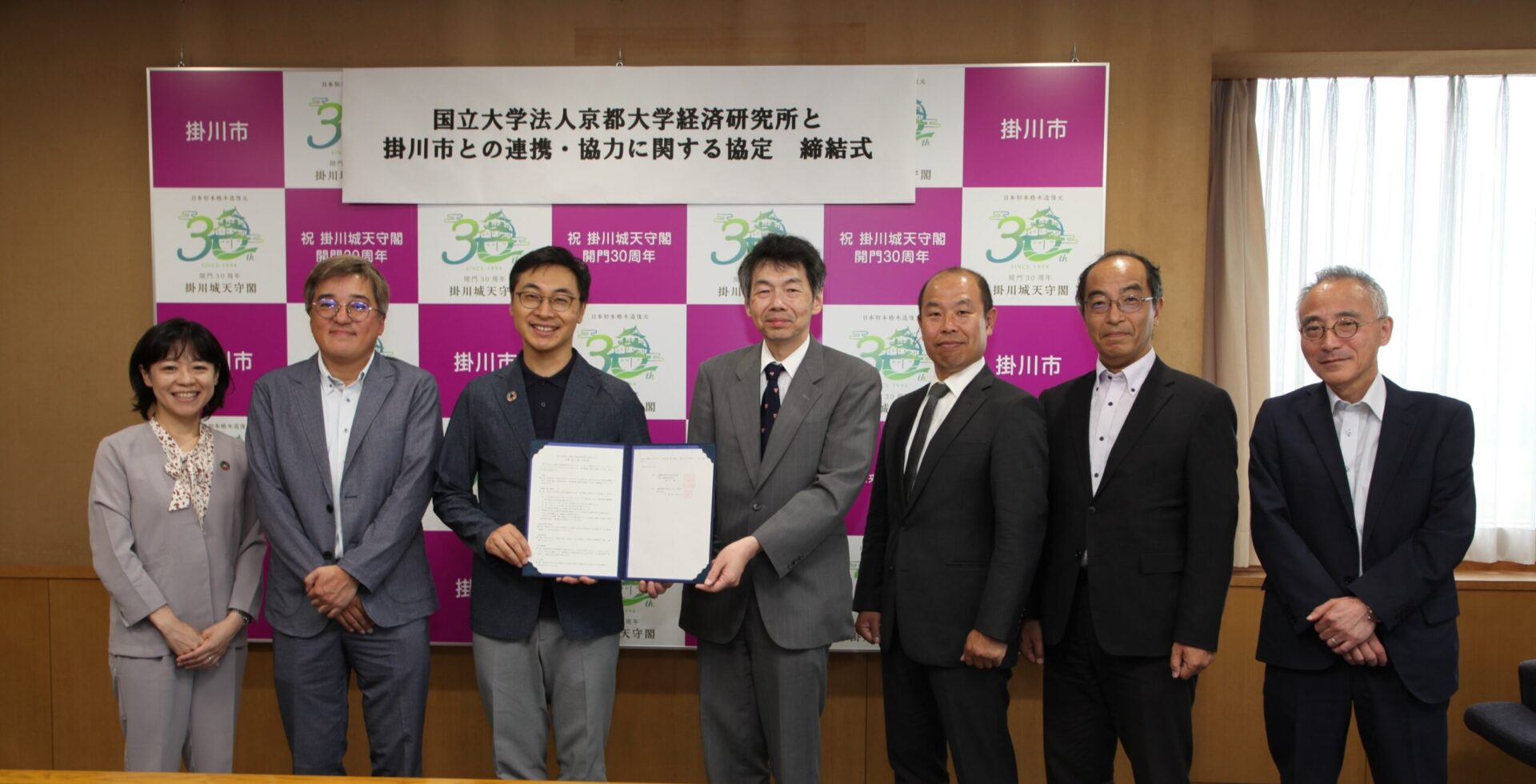
Kochi Prefecture
An agreement on collaboration and cooperation for Regional Development was concluded September 22, 2023 with Kochi Prefecture.
The aim of the agreement is to strengthen cooperation to tackle the declining birthrate through analyzing data provided by Kochi Prefecture.

Kochi Prefecture and Sumitomo Mitsui Card Company, Limited
An agreement on collaboration and cooperation was concluded May 22, 2024 with Kochi Prefecture and Sumitomo Mitsui Card Company, Limited.
The aim of the agreement is to strengthen cooperation in order to analyze the effect of tourism policy of Kochi Prefecture using cashless payment data provided by Sumitomo Mitsui Card Company and support the prefecture to improve productivity and income of tourism-related industries.

Planning and Coordination Bureau of Kobe city
On September 17, 2024, KIER concluded an agreement on collaboration and cooperation with the Planning and Coordination Bureau of Kobe city. The aim of the agreement is to promote EBPM (evidence-based policy making) based on economics and data science through collaboration between the government and academia. We will promote joint research to solve issues in the field of public administration through regular meetings.
National Research University Higher School of Economics, Russia
An agreement for academic exchanges was concluded April 2, 2007 with the National Research University Higher School of Economics, Russia.
Founded in 1992, the Higher School of Economics is a leading Russian university, located in Moscow as well as St. Petersburg, Nizhniy Novgorod and Perm. It has economics, social sciences, law and other faculties as well as several attached institutes including practical research centers, and maintains collaborative relationships with the Ministry of Economic Development and Trade and Ministry of Education. It hosts a large international conference each April.
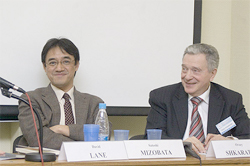
Centre d’Economie de la Sorbonne, Pantheon-Sorbonne University
An agreement for academic cooperation and exchanges was concluded July 26, 2007 with the Centre d’Economie de la Sorbonne, Pantheon-Sorbonne University, France.
Pantheon-Sorbonne University (Paris 1) inherits the centuries of proud history of the Sorbonne, or University of Paris, and has one of the leading economics research centers in France. The Centre National de la Recherche Scientifique, which embraces a total of 1300 research units, is one of the member institutions making up the university.
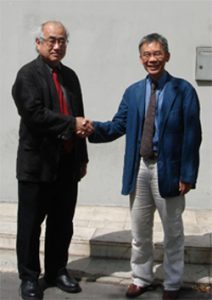
Center for Research in Economics and Statistics, France
An agreement for academic cooperation and exchanges was concluded July 26, 2007 with the Center for Research in Economics and Statistics, France.
Aix-Marseille University
An agreement for academic cooperation and exchanges was concluded November 28, 2007 with Aix-Marseille University.
Aix-Marseille University traces its origin to 1409. The modern university was established in 1970 in Marseille, the second city of France, as three sister institutions for the humanities, the natural sciences and the social sciences, which merged in 2012.
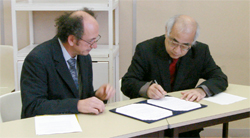
Institute for Economic Research, Seoul National University
An agreement for academic cooperation and exchanges was concluded February 22, 2008 with the Institute for Economic Research, Seoul National University.
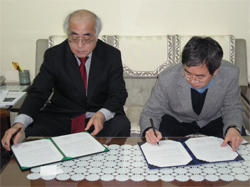
University of North Carolina at Chapel Hill
An agreement for academic cooperation and exchanges was concluded April 22, 2009 with the University of North Carolina at Chapel Hill (USA).
UNC Chapel Hill, founded in 1789, has colleges of arts and sciences, law, business and medicine. The Department of Economics has 30 full-time faculty members and places strong emphasis on research, including cooperative programs with Duke University and North Carolina State University.
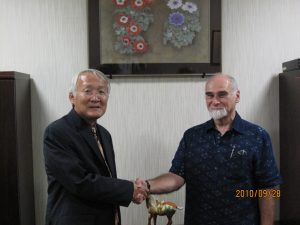
Helsinki Center of Economic Research
An agreement for academic cooperation and exchanges was concluded September 8, 2009 with the Helsinki Center of Economic Research (HECER), Finland.
HECER is a joint initiative of the University of Helsinki, the Aalto University School of Business, and the Hanken School of Economics.
Institute of Economics, Hungarian Academy of Sciences
An agreement for academic cooperation and exchanges was concluded March 23, 2010 with the Institute of Economics, Hungarian Academy of Sciences.
The Hungarian Academy of Sciences, founded in 1808, operates the Institute of Economics which conducts theoretical and practical research focused on market transition theory and Hungary. There are seven departments including macroeconomics and growth, labor, educational economics, and industrial organization. This research institution also emphasizes teaching.
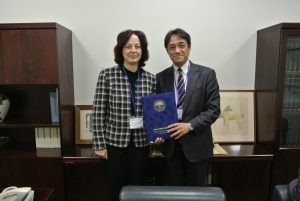
China Center for Economic Research, Peking University
An agreement for academic cooperation and exchanges was concluded June 22, 2017 with the China Center for Economic Research, Peking University.
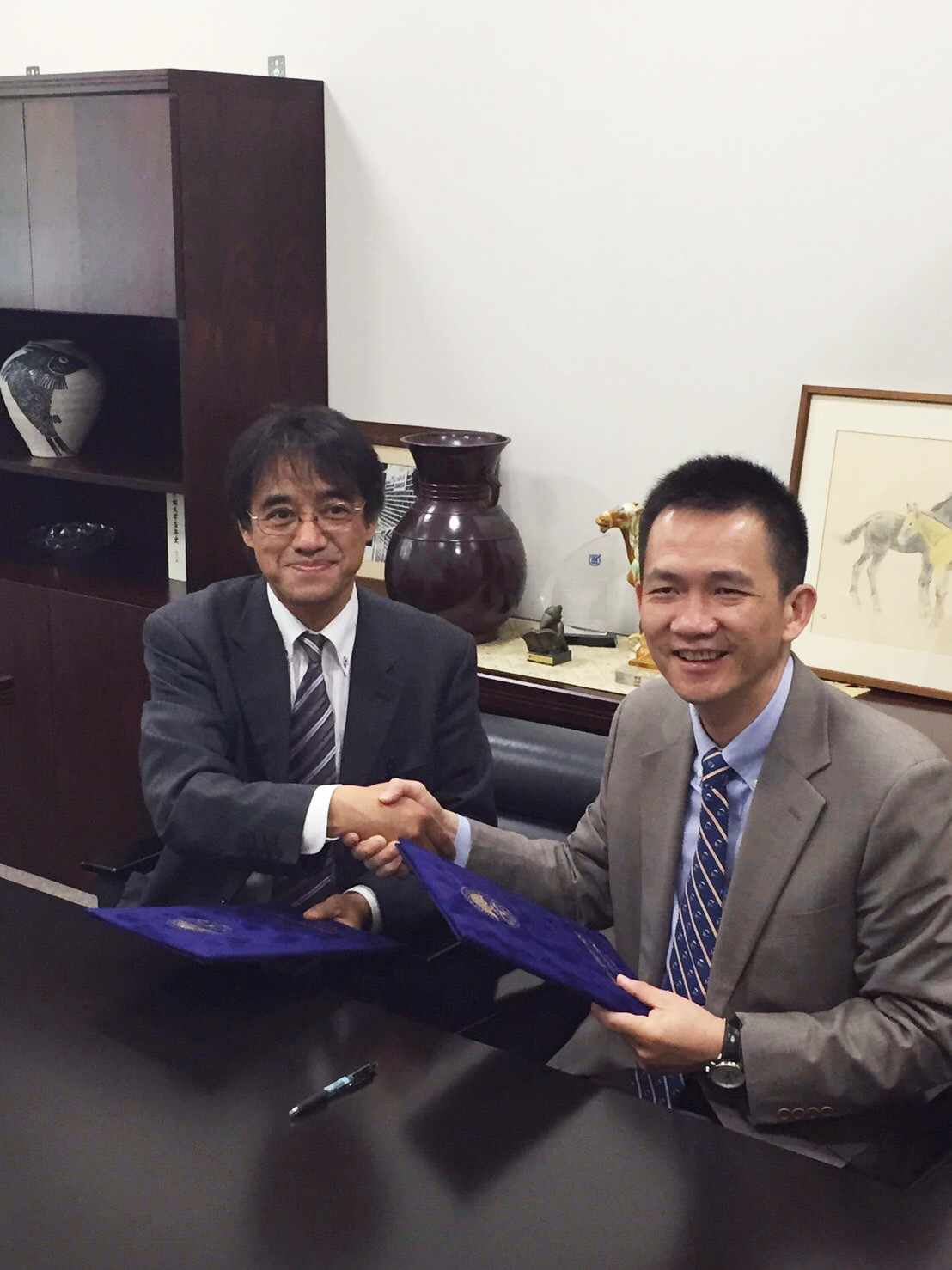
ASIA University
An agreement for academic cooperation and exchanges was concluded April 2, 2018 with the ASIA University.
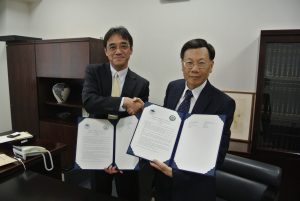
St Petersburg University
An agreement for academic cooperation and exchanges was concluded April 19, 2018with the St Petersburg University.

Yonsei University
Yonsei University is a private university in Seoul, South Korea, and is one of the top universities of the nation.
Its School of Economics was the first to teach economics as a Korean university, with its forerunner being established in 1915.
The School of Economics and Finance at Queen Mary University of London
The Institute made an agreement for academic cooperation and exchanges on July 22, 2025 with the School of Economics and Finance, Queen Mary University of London.
Queen Mary University of London is known as one of the UK’s leading research universities, and its faculty has a world-class track record in fields such as econometrics, financial engineering, and international economics.
Building on existing collaborative relationships between researchers, a framework for cooperation has been established, centered on faculty and researcher exchanges, joint research, and the exchange of materials and information, with expectations for the future development of international collaborative research.